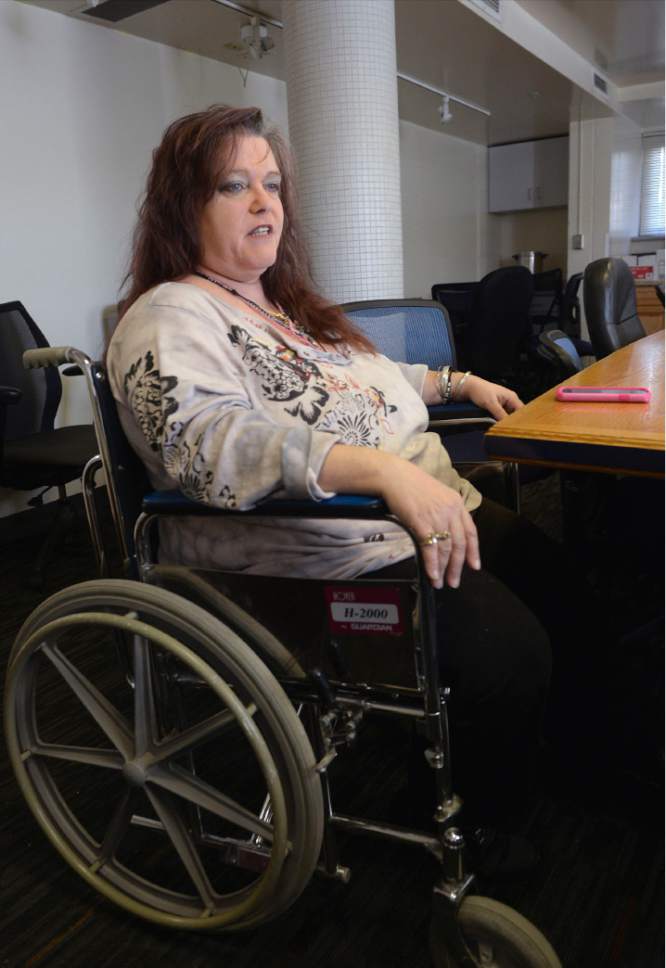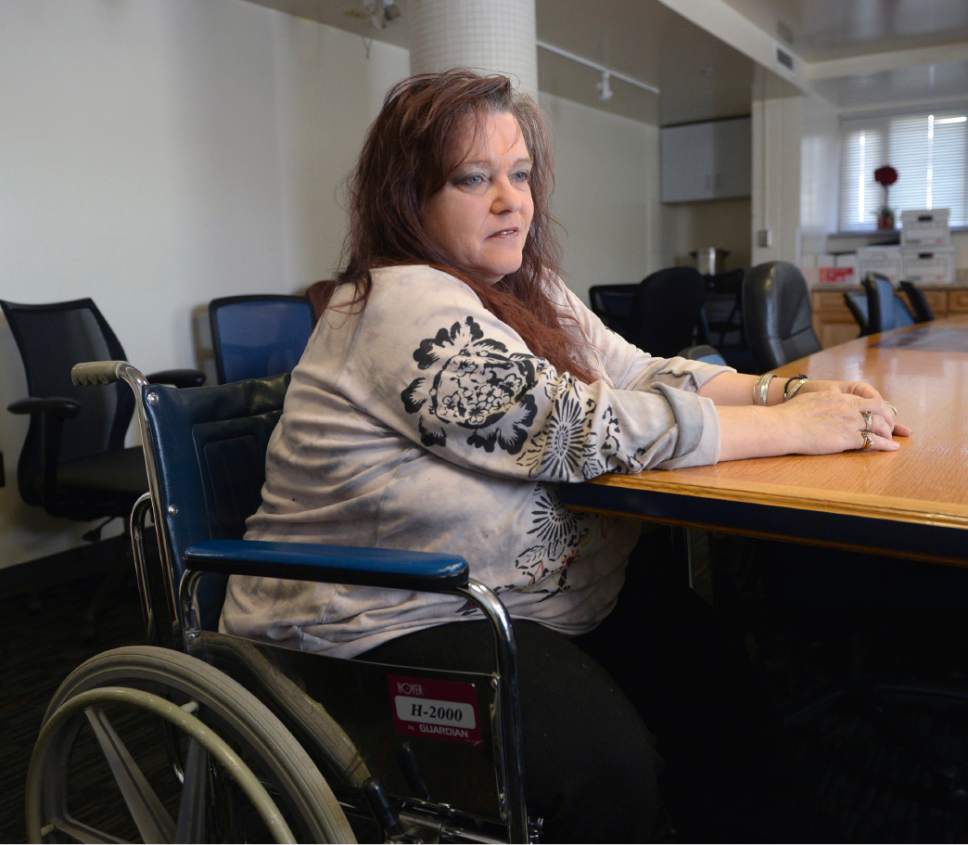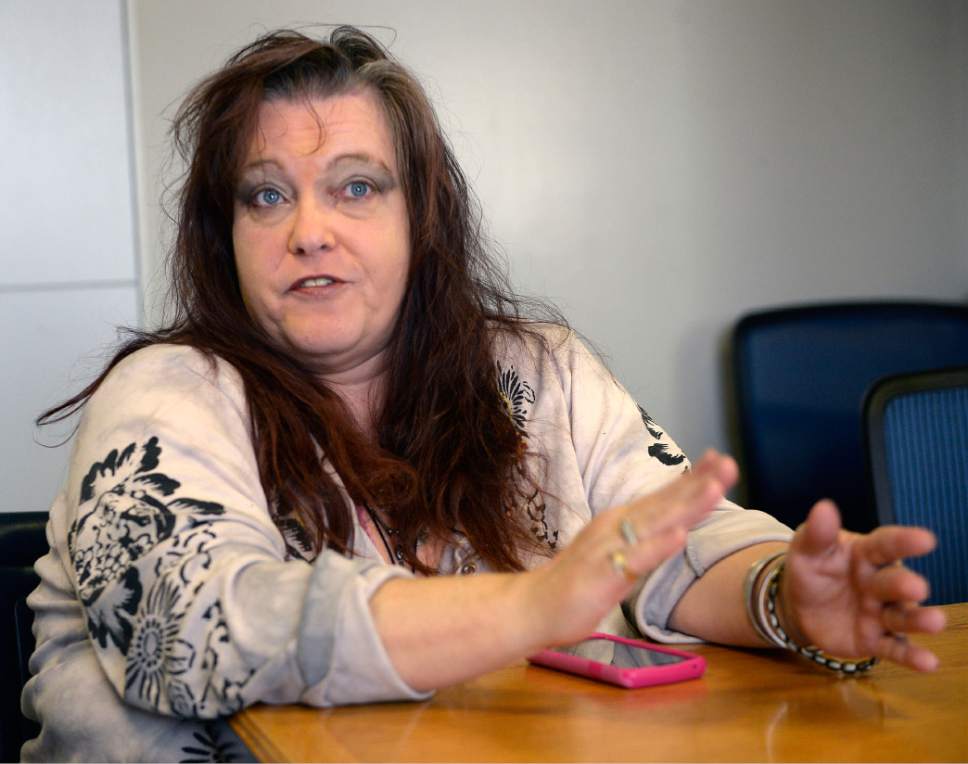This is an archived article that was published on sltrib.com in 2017, and information in the article may be outdated. It is provided only for personal research purposes and may not be reprinted.
Kimberly Fox rolled her wheelchair through the hallways of the Road Home shelter in Salt Lake City last month, reflecting on the events of the past decade that left her homeless and alone.
She used to be a photographer at a glossy magazine in Baltimore. She used to manage a record store. She used to be a productive member of society, she said. But when Fox, now 53, tripped on a pile of paint supplies in 2002 while working in a Baltimore shipyard, the fall wrecked her foot and her ability to work along with it.
Fox eventually lost her house and, after staying with a friend in Wyoming, ended up at the Road Home, forcing her to rely on free care at the Fourth Street Clinic for her continuing orthopedic problems.
Just a few months ago, there was hope that Fox would get health insurance coverage from Medicaid this year. Utah health officials previously thought they would begin enrolling individuals in Medicaid on Jan. 1 through a small-scale expansion plan — projected to cover 9,000 to 11,000 Utahns — signed by Gov. Gary Herbert in 2016.
That plan, in part, targets Utahns like Fox: Childless adults who are chronically homeless, as well as those involved in the justice system, or who need mental-health or substance-abuse treatment. The plan also would have expanded coverage for low-income parents with dependent children previously not covered by Medicaid.
President Barack Obama's administration decided not to rule on the plan, leaving it instead up to officials in President Donald Trump's administration. They have yet to make a decision.
Health officials have said it's unlikely that the federal government will act on the plan quickly.
Given the broader conversation on health care reform, said Micah Vorwaller, a health policy analyst for the Utah Health Policy Project (UHPP), "it doesn't appear that there's going to be a lot of pressure placed to try to move that forward."
Jason Stevenson, UHPP education and communications director, said the Trump administration and the state have a number of options to deal with this delay. The Centers for Medicare and Medicaid Services under Trump's team could eventually rule on the plan or send it back to Utah officials and ask them to try again.
State officials also could withdraw the plan and try again, this time with provisions such as work requirements that were nonstarters under the Obama administration. Rep. Jim Dunnigan, R-Taylorsville, who sponsored legislation outlining what the plan should include, has said he doesn't intend to do that, nor does he plan to push through a measure to submit a competing Medicaid expansion plan to the feds.
Earlier this month, however, state officials took a step to help some of the people who have found themselves in federal approval limbo: They submitted a separate plan that focuses solely on the 3,000 to 5,000 low-income parents. The feds indicated in December they would approve that portion, and state officials hope to begin enrolling these parents July 1.
That doesn't help Fox, though, who said she suspects she's unable to see a specialist because few are willing to take her case for free. But, with Medicaid, she added, many of her doctor visits and potential surgeries could be covered.
Fox said her collapsed foot has caused knee, back and hip problems. She's constantly in pain, she said, and a five-minute walk can leave her sore and bedridden for hours.
The chronic pain, coupled with her increasing inability to be on her feet, makes it difficult to get a job.
She said she wants to work. And she wants to get fixed.
"I want to be a productive member of society," she said. "I've got dreams and goals. I want to be active, to try to be happy again."







